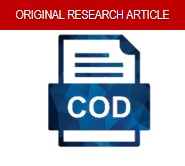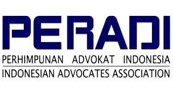Wanted List-Based Drug Law Enforcement
Effective Strategy or Mere Formality?
DOI:
https://doi.org/10.46924/jihk.v7i1.301Keywords:
Wanted Persons List, Narcotics Offenses, Law Enforcement, Information TechnologyAbstract
The widespread abuse of narcotics in Indonesia represents a multifaceted issue, significantly exacerbated by weaknesses within the law enforcement system—particularly in the arrest of individuals listed on the Wanted Persons List (DPO). This study aims to (1) identify the legal procedures for determining DPO status, (2) evaluate the strategies and operational challenges involved in the arrest process, and (3) analyze the role of information technology and inter-agency cooperation in enhancing the effectiveness of law enforcement. Employing an empirical juridical method with a qualitative approach, the research draws upon document analysis and in-depth interviews with law enforcement personnel. The findings reveal that, although the legal foundation for determining DPO status is well established, its implementation is hindered by structural barriers, limited inter-agency coordination, and the suboptimal application of digital technologies. The study concludes by underscoring the urgent need for the integration of digital systems, the reinforcement of cross-institutional collaboration, and the enhancement of human resource capacity to effectively support the eradication of narcotics-related crimes in Indonesia.
Downloads
References
Journals
Amanda, Niken Dwi, Merry Kurniawati Nurdin, Cinta Rizqareka Darmawan, Hilyah Az Zahra, Ananda Ratu Mawaddah, Setyo Nugraha, and Mulyadi Mulyadi. “Analisis Penanganan Kasus Narkoba Ditinjau Dari Perspektif Hukum Dan Masyarakat.” Media Hukum Indonesia 2, no. 2 (2024): 249–58. https://ojs.daarulhuda.or.id/index.php/MHI/article/view/356.
Broadhurst, Roderic G. “Developments in the Global Law Enforcement of Cyber-Crime.” Policing An International Journal 29, no. 3 (2006): 1–29. https://doi.org/10.1108/13639510610684674.
Hapsari, Ifahda Pratama. “Efektivitas Penerapan Pidana Mati Terhadap Tindak Pidana Narkotika Di Indonesia.” Jurnal Justiciabelen 1, no. 2 (2018): 241–251. https://doi.org/10.30587/justiciabelen.v1i2.831.
Indriyani, Dwi Nova, I Nyoman Gede Sugiartha, and Ni Made Sukaryati Karma. “Optimalisasi Intelijen Kejaksaan Dalam Pelaksanaan Penanganan Tangkap Buron Dpo Terpidana Tindak Pidana Narkotika Dan Pencucian Uang: Studi Kasus Kejaksaan Negeri Denpasar.” Jurnal Konstruksi Hukum 4, no. 2 (2023): 166–71. https://doi.org/10.22225/jkh.4.2.6795.166-171.
Kristiyani, Marlina, and Vieta Imelda Cornelis. “Penegakan Hukum Terhadap Pelaku Tindak Pidana Narkotika Di Wilayah Hukum Kepolisian Resor Kota Besar Surabaya.” Binamulia Hukum 12, no. 1 (2023): 201–211. https://doi.org/10.37893/jbh.v12i1.331.
Leso, Bernardo Henrique, Marcelo Nogueira Cortimiglia, and Antonio Ghezzi. “The Contribution of Organizational Culture, Structure, And Leadership Factors in the Digital Transformation of SMES: A Mixed-Methods Approach.” Cognition, Technology & Work 26, no. 4 (2023): 151–179. https://doi.org/10.1007/s10111-022-00714-2.
Natasya, Alya, and Tulus Yuniasih. “NCB-Interpol Indonesia Dalam Penanganan Permasalahan Narkotika Lintas Batas Di Selat Malaka 2020-2022.” Balcony: Budi Luhur Journal of Contemporary Diplomacy 7, no. 1 (2023): 51–64. https://jom.fisip.budiluhur.ac.id/balcony/article/view/394.
Rahman, Abdul, Lauddin Marsuni, and Aan Aswari. “Efektivitas Pelaksanaan Fungsi Kepolisian Terhadap Tindak Pidana Penyalahgunaan Narkotika.” Journal of Lex Theory 5, no. 2 (2024): 537–51. http://pasca-umi.ac.id/index.php/jlt/article/view/1765.
Remi, Muhammad, and Ainal Hadi. “Penyidikan Terhadap Permufakatan Jahat Melakukan Tindak Pidana Prekursor Narkotika: Suatu Penelitian Di Wilayah Hukum Polresta Banda Aceh.” Jurnal Ilmiah Mahasiswa: Bidang Hukum Pidana 4, no. 2 (2020): 201–16. https://jim.usk.ac.id/pidana/article/view/16625.
Siagian, Putri Rumondang, Syafruddin Kalo, Edi Yunara, and Muhammad Hamdan. “Tinjauan Yuridis Tentang Larangan Pengajuan Praperadilan Oleh Orang Yang Berstatus Daftar Pencarian Orang (DPO).” Iuris Studia: Jurnal Kajian Hukum 2, no. 3 (2021): 581–90. https://doi.org/10.55357/is.v2i3.177.
Syarifuddin, Syarifuddin, Teresia Din, Tri Andriani, Antonius Rino Vanchapo, Hezron Sabar Rotua Tinambunan, and Dhiraj Kelly Sawlani. “Reformasi Hukum Di Era Digital: Tantangan Dan Peluang Di Indonesia.” Indonesian Research Journal on Education 4, no. 4 (2024): 3206–15. https://doi.org/10.31004/irje.v4i4.1685.
Waldiansah, Waldiansah, and Hardianto Djanggih. “Efektivitas Penegakan Hukum Terhadap Pelaku Tindak Pidana Narkotika Di Kabupaten Majene.” Journal of Lex Theory 4, no. 2 (2023): 317–22. https://pasca-umi.ac.id/index.php/jlt/article/view/1575.
Yuliana, Yuliana, Anwar Parawangi, and Muhammad Tahir. “Efektivitas Kinerja Penanganan Tindak Pidana Narkoba Anak Di Bawah Umur Pada Kepolisian Resort Kabupaten Pinrang.” Kajian Ilmiah Mahasiswa Administrasi Publik 2, no. 5 (2021): 1827–41. https://doi.org/10.26618/kimap.v2i5.5423.
Proceedings
Asiana, Lynda. “The Use of Information Technology in Searching Transnational Crime.” In The 2nd International Conference of Law, Government and Social Justice, 32–42. Dordrecht: Atlantis Press, 2020. https://doi.org/10.2991/assehr.k.201209.265.
Books
Adhari, Ade. Pembaharuan Sistem Hukum Pelaksanaan Pidana. Yogyakarta: Deepublish, 2020.
Web Pages
Badan Narkotika Nasional Republik Indonesia. “Hindari Narkotika Cerdaskan Generasi Muda Bangsa.” Badan Narkotika Nasional Republik Indonesia, 2022. https://bnn.go.id/hindari-narkotika-cerdaskan-generasi-muda-bangsa/.
Downloads
Published
Issue
Section
License
Copyright (c) 2025 Naysa Andrea Thie, Ade Adhari

This work is licensed under a Creative Commons Attribution 4.0 International License.
Authors who publish with this journal agree to the following terms:
- Copyright on any article is retained by the author(s).
- The author grants the journal, the right of first publication with the work simultaneously licensed under a Creative Commons Attribution License that allows others to share the work with an acknowledgment of the work’s authorship and initial publication in this journal.
- Authors are able to enter into separate, additional contractual arrangements for the non-exclusive distribution of the journal’s published version of the work (e.g., post it to an institutional repository or publish it in a book), with an acknowledgment of its initial publication in this journal.
- Authors are permitted and encouraged to post their work online (e.g., in institutional repositories or on their website) prior to and during the submission process, as it can lead to productive exchanges, as well as earlier and greater citation of published work.
- The article and any associated published material is distributed under the Creative Commons Attribution 4.0 International License



 Sinta ID:
Sinta ID: 


















